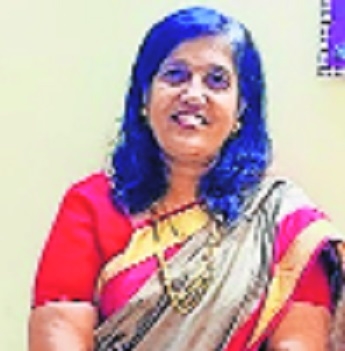‘Human rights & human duties go hand in hand’
| Date :08-Dec-2024 |

Anjali Thombre
By Vaishnavi Pillay :
With scary images emerging from Bangladesh, the issue of human rights and their violation has occupied the centrestage of public discourse in India. But, how did the situation in the neighbouring country come to a pass? Was it about insensitivity towards human rights or lack of responsibility towards human duties?
With this question, ‘The Hitavada’ spoke to social activist Anjali Thombre, Chief of women’s wing of Bharatiya Vichar Manch, Nagpur, ahead of the International Human Rights Day on December 10. “People know a lot about their rights and fight for them. But, even after being aware of their duties, they do not follow them. We see movements and protests for rights, but do we see such efforts for duties? No, we do not,” observed Thombre. She stressed that rights and duties go hand in hand, and until people understand this balance, meaningful change would remain elusive.
hombre felt that Indians were better aware about human rights and the issues that remained neglected for long were coming to light. In the Indian context, Thombre acknowledged the comprehensive rights enshrined in the Constitution of India but lamented the gap between theory and practice. She also mentioned that political interests often overshadowed the pursuit of justice. “Politicians accorded priority to vote-bank politics over real issues linked to human rights. We must remind everyone, especially politicians, that human rights are for humans, not for politics. Justice should not be dictated by political agendas,” she emphasised.
“New challenges are emerging in private sector where women are facing hurdles in promotion due to assumptions about their contribution, as they need to balance professional responsibilities with family commitments,” she said. The issue, she suggested, lies in the unfounded justifications often used to deny opportunities to women. Also, on the often misunderstood concept of gender equality in society, she pointed out that equality did not necessarily mean men and women doing the same tasks.
“Equality is not about mimicking each other’s roles but rather understanding shared responsibility, and ensuring that everyone has the freedom to live with dignity and respect,” she added.
Responding to another question, Anjali Thombre mentioned that in some villages in India, some communities still faced discrimination in accessing cremation grounds. “If societal attitudes do not change, rights will remain inaccessible. To truly exercise rights, one needs society’s support. Sometimes, misuse of laws creates resentment within communities, and this undermines progress,” she remarked.
While mentioning challenges faced by human rights activists in India, she dubbed the difficulty of maintaining a balanced approach in a polarised landscape as one of those challenges.
The narrative around human rights issues often favours certain voices while ignores others, she observed. “If a woman from one community faces discrimination, her story often gains international traction. Yet, a similar issue from another community struggles to fetch same attention,” she rued.
Thombre acknowledged the significant role social media played in amplifying opinions, both positive and negative. However, she concluded that this freedom of expression should not come at the cost of infringing upon others’ rights.
n



